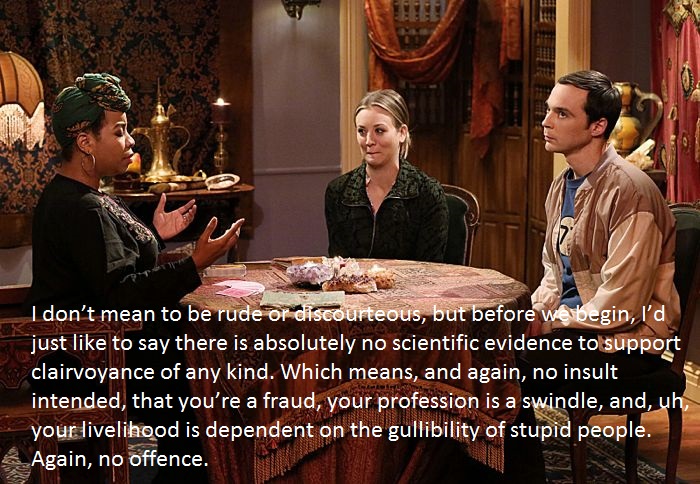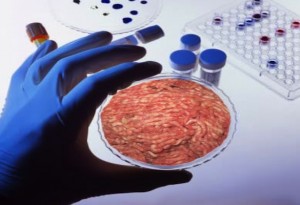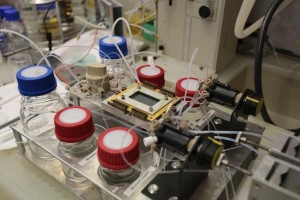Mar
31
2016
 There are two undeniable trends that impact global food production – increasing CO2 in the atmosphere is warming the planet, and the human population is growing. The former affects production, the latter demand. In both cases there are anti-scientific ideological groups hampering progress, and even denying that there is a problem.
There are two undeniable trends that impact global food production – increasing CO2 in the atmosphere is warming the planet, and the human population is growing. The former affects production, the latter demand. In both cases there are anti-scientific ideological groups hampering progress, and even denying that there is a problem.
By 2050 it is estimated that the world human population will be 9.7 billion. This means we will need to produce 87% more food than we produce today. Johannes Kromdijk and Stephen P. Long argue in a recent paper that we need to act now if we are going to avoid a serious food shortage. They argue we are “One crop breeding cycle from starvation.”
Rising CO2
Some who deny the reality of global climate change have argued that, even if CO2 is increasing in the atmosphere, who is to say it’s a bad thing? Plants breath CO2, so increasing CO2 should just increase plant growth.
Continue Reading »
Mar
29
2016
 Craig Venter’s team has crossed another milestone in their quest to engineer artificial life – they have engineered a bacterium that can survive and reproduce with just 473 genes. This is the smallest genome of any free-living thing (so that does not include viruses).
Craig Venter’s team has crossed another milestone in their quest to engineer artificial life – they have engineered a bacterium that can survive and reproduce with just 473 genes. This is the smallest genome of any free-living thing (so that does not include viruses).
The purpose of this is to create a minimal starting point for later genetic engineering. Venter says this minimal bacterium is like a frame onto which specific modules can be placed. He envisions a future in which you can have made-to-order genetically engineered bacteria in which you plug in specific functions.
The Basic Science
This research program is also interesting from a purely basic science perspective. The bacterium used in Venter’s research is Mycoplasma mycoides. The choice of a Mycoplasma bacterium was obvious, as the species in the wild with the smallest number of genes is the related Mycoplasma genitalium, which has 525 genes. The new bacterium has 52 fewer genes.
Continue Reading »
Mar
28
2016
 This has been a typical saga, one we have seen played out many times. An organization (company, institution, etc.) provides a venue for an irresponsible anti-science article, speaker, or film. There is then a public outcry that the venue is being exploited to promote pseudoscience. The organization initially defends their decision, then reconsiders. The author, speaker, director then cries “censorship.”
This has been a typical saga, one we have seen played out many times. An organization (company, institution, etc.) provides a venue for an irresponsible anti-science article, speaker, or film. There is then a public outcry that the venue is being exploited to promote pseudoscience. The organization initially defends their decision, then reconsiders. The author, speaker, director then cries “censorship.”
It’s a predictable script.
Recently the Tribeca Film Festival announced its list of movies it will be screening this year, and among them was Vaxxed: From Cover-Up to Catastrophe, a movie perpetuating the idea that the Center for Disease Control (CDC) is covering up data that shows a link between the MMR vaccine and autism.
Orac discusses the content of the movie in detail, but here is a quick summary. The movie is produced by Andrew Wakefield, the disgraced struck-off British doctor who published a study in the Lancet claiming evidence for a connection between MMR and autism. The paper was later retracted and found to be fraudulent.
Continue Reading »
Mar
22
2016

I know, it’s redundant. All psychics are fake and a scam, but some are worse than others.
When most people think of psychics they conjure an image (see what I did there) of someone dressed in robes in a mystically decorated parlor who reads your palm or the tarot cards for $40. They are making a meager living giving people a bit of harmless entertainment. Some may actually think they have powers, some may know it’s all an act, but what’s the harm?
In truth, however, many psychics are predators who scam people out of hundreds, thousands, even tens of thousands of dollars. They prey on the vulnerable and the desperate and can ruin lives. This is not a benign industry.
A recent report from Toronto is just one of many – a steady stream with no expectation of ending. They report stories of people who have been victimized by psychics promising to turn around their fortunes, while parasitically bleeding them of as much money as possible. Continue Reading »
Mar
21
2016
 Lab-grown meat now seems inevitable, although it is still hard to predict exactly how long it will take to become a popular consumer item. Here is a quick overview of what this is, and its potential to improve our food supply.
Lab-grown meat now seems inevitable, although it is still hard to predict exactly how long it will take to become a popular consumer item. Here is a quick overview of what this is, and its potential to improve our food supply.
Lab grown meat involves taking muscle stem cells from animals, like pigs, chickens, or cows, and then growing them, well, in a lab. They can be grown in a large vat of nutrients.
What you end up with is not fully formed muscle, as if it were taken from an animal, but simply a mass of muscle cells. Animal muscles also contain fat, vessels, and connective tissue, which help give it its texture. For taste the fat marbling is probably the most important.
Continue Reading »
Mar
18
2016
In a recent commentary, framed as an open letter to David Sackett (the father of evidence-based medicine), John Ioannidis argues that EBM has been hijacked by various interests. He also clarifies his position in an interview with Retraction Watch.
Ioannidis hits many interesting points: EBM has become a way to market products and services, clinical studies are largely in the hands of corporations with vested interests, academics are under their own pressures which emphasize getting grant money, practitioners are likewise struggling to survive in an era of managed care, and quacks and charlatans are exploiting the whole mess.
It is an eye-opening roller-coaster ride, including many personal stories, through the mind of perhaps the most famous current critic of the industry of medical science. I agree with much of what he says, and in fact they coincide with a great deal of commentary here and at science-based medicine. He takes a more cynical and pessimistic tone than I would, but that is subjective.
Continue Reading »
Mar
17
2016
 Does sugar make kids hyper? Has science proven bumble bees can’t fly? Does the average person only use 10% of their brain capacity? Are routine multivitamins good for you? Were the dinosaurs killed off by an asteroid impact?
Does sugar make kids hyper? Has science proven bumble bees can’t fly? Does the average person only use 10% of their brain capacity? Are routine multivitamins good for you? Were the dinosaurs killed off by an asteroid impact?
It is often observed that when a fact is accepted uncritically because, “everyone knows it to be true,” it is probably false. The answers to the above questions are no, no, no, probably not, and it’s more complicated than you think.
The best way to drive this home for many people is this – think of the one area of knowledge in which you have the greatest expertise. This does not have to be your job, it can be just a hobby. Now, how accurate are news reports that deal with your area of extensive knowledge? How much does the average person know? Does anyone other than a fellow enthusiast or expert ever get it quite right?
The universal experience (according to my informal survey over many years) is that the general public is full of misinformation and oversimplifications about your area of knowledge. Now extrapolate that experience to all other areas of knowledge. This means that you are full of misinformation and oversimplifications about every area in which you are not an expert.
Continue Reading »
Mar
15
2016
 On a recent episode of the Joe Rogan Experience (starting at the 2:10 mark), Rogan discusses an article I wrote previously on Science-Based Medicine about whole body cryotherapy (WBC). Rogan did not like my article, which he characterized as “poorly done and poorly researched.” He was discussing the article and WBC in general with his guest, Dr. Rhonda Patrick.
On a recent episode of the Joe Rogan Experience (starting at the 2:10 mark), Rogan discusses an article I wrote previously on Science-Based Medicine about whole body cryotherapy (WBC). Rogan did not like my article, which he characterized as “poorly done and poorly researched.” He was discussing the article and WBC in general with his guest, Dr. Rhonda Patrick.
What this discussion revealed, in my opinion, is a significant lack of understanding of the roles of basic science research vs clinical research. Before I get to the discussion, here is a quick review of WBC.
Whole Body Cryotherapy
WBC involves exposing the whole body to extremely low temperatures, -200 to -240 degree F temperatures (-125 to -150 C) for 1.5-3 minutes. There are chambers where the head sticks out the top, and there are chambers that you step into entirely.
Continue Reading »
Mar
14
2016
 There are now many aspects of my life in which I prefer to interact with a computer rather than a person. When I stop to fill up my tank or remove some cash from my bank account, I can do so quickly and efficiently by interfacing directly with an automated machine. It is interesting to think about exactly why this is, but first let me discuss the findings of a new study looking at this very question.
There are now many aspects of my life in which I prefer to interact with a computer rather than a person. When I stop to fill up my tank or remove some cash from my bank account, I can do so quickly and efficiently by interfacing directly with an automated machine. It is interesting to think about exactly why this is, but first let me discuss the findings of a new study looking at this very question.
Dr. Matthew Winter and his fellow researchers presented the results of a randomized trial at the European Association of Urology 31st Annual Congress in which they compared giving informed consent via video vs in person prior to a urological procedure.
The study randomized 88 patients to either have a face-to-face consultation with the surgeon, or to viewing a prepared video including animation to describe the procedure. They then quizzed them on their knowledge of the procedure, and did a follow up cross-over in which the groups switched and then were re-tested.
Continue Reading »
Mar
11
2016
 I dislike gratuitous analogies that don’t actually facilitate your understanding of a new concept or technology, and may even be inherently misleading. A great analogy, however, is science communication gold.
I dislike gratuitous analogies that don’t actually facilitate your understanding of a new concept or technology, and may even be inherently misleading. A great analogy, however, is science communication gold.
I was intrigued by articles discussing “electronic blood.” What exactly is it, and is the blood analogy gratuitous or helpful? In the end I think it was fairly accurate.
Electronic blood is not yet ready for the market, it is still in the research and development stage. It is also not an electronic replacement for biological blood, but a blood-like replacement for electronic power and cooling. The ideas is to both power and cool computer chips with a redox fluid that can provide energy through oxidation and then be recharged through reduction. At the same time the fluid can carry heat away from the processor.
The blood analogy is actually perfect. Blood carries energy to every cell while carrying away waste. Electronic blood would carry energy to every part of a computer chip while carrying away waste heat.
Continue Reading »
 There are two undeniable trends that impact global food production – increasing CO2 in the atmosphere is warming the planet, and the human population is growing. The former affects production, the latter demand. In both cases there are anti-scientific ideological groups hampering progress, and even denying that there is a problem.
There are two undeniable trends that impact global food production – increasing CO2 in the atmosphere is warming the planet, and the human population is growing. The former affects production, the latter demand. In both cases there are anti-scientific ideological groups hampering progress, and even denying that there is a problem.

 This has been a typical saga, one we have seen played out many times. An organization (company, institution, etc.) provides a venue for an irresponsible anti-science article, speaker, or film. There is then a public outcry that the venue is being exploited to promote pseudoscience. The organization initially defends their decision, then reconsiders. The author, speaker, director then cries “censorship.”
This has been a typical saga, one we have seen played out many times. An organization (company, institution, etc.) provides a venue for an irresponsible anti-science article, speaker, or film. There is then a public outcry that the venue is being exploited to promote pseudoscience. The organization initially defends their decision, then reconsiders. The author, speaker, director then cries “censorship.”
 Lab-grown meat now seems inevitable, although it is still hard to predict exactly how long it will take to become a popular consumer item. Here is a quick overview of what this is, and its potential to improve our food supply.
Lab-grown meat now seems inevitable, although it is still hard to predict exactly how long it will take to become a popular consumer item. Here is a quick overview of what this is, and its potential to improve our food supply. Does sugar make kids hyper? Has science proven bumble bees can’t fly? Does the average person only use 10% of their brain capacity? Are routine multivitamins good for you? Were the dinosaurs killed off by an asteroid impact?
Does sugar make kids hyper? Has science proven bumble bees can’t fly? Does the average person only use 10% of their brain capacity? Are routine multivitamins good for you? Were the dinosaurs killed off by an asteroid impact? On a
On a  There are now many aspects of my life in which I prefer to interact with a computer rather than a person. When I stop to fill up my tank or remove some cash from my bank account, I can do so quickly and efficiently by interfacing directly with an automated machine. It is interesting to think about exactly why this is, but first let me discuss the findings of a new study looking at this very question.
There are now many aspects of my life in which I prefer to interact with a computer rather than a person. When I stop to fill up my tank or remove some cash from my bank account, I can do so quickly and efficiently by interfacing directly with an automated machine. It is interesting to think about exactly why this is, but first let me discuss the findings of a new study looking at this very question. I dislike gratuitous analogies that don’t actually facilitate your understanding of a new concept or technology, and may even be inherently misleading. A great analogy, however, is science communication gold.
I dislike gratuitous analogies that don’t actually facilitate your understanding of a new concept or technology, and may even be inherently misleading. A great analogy, however, is science communication gold.




